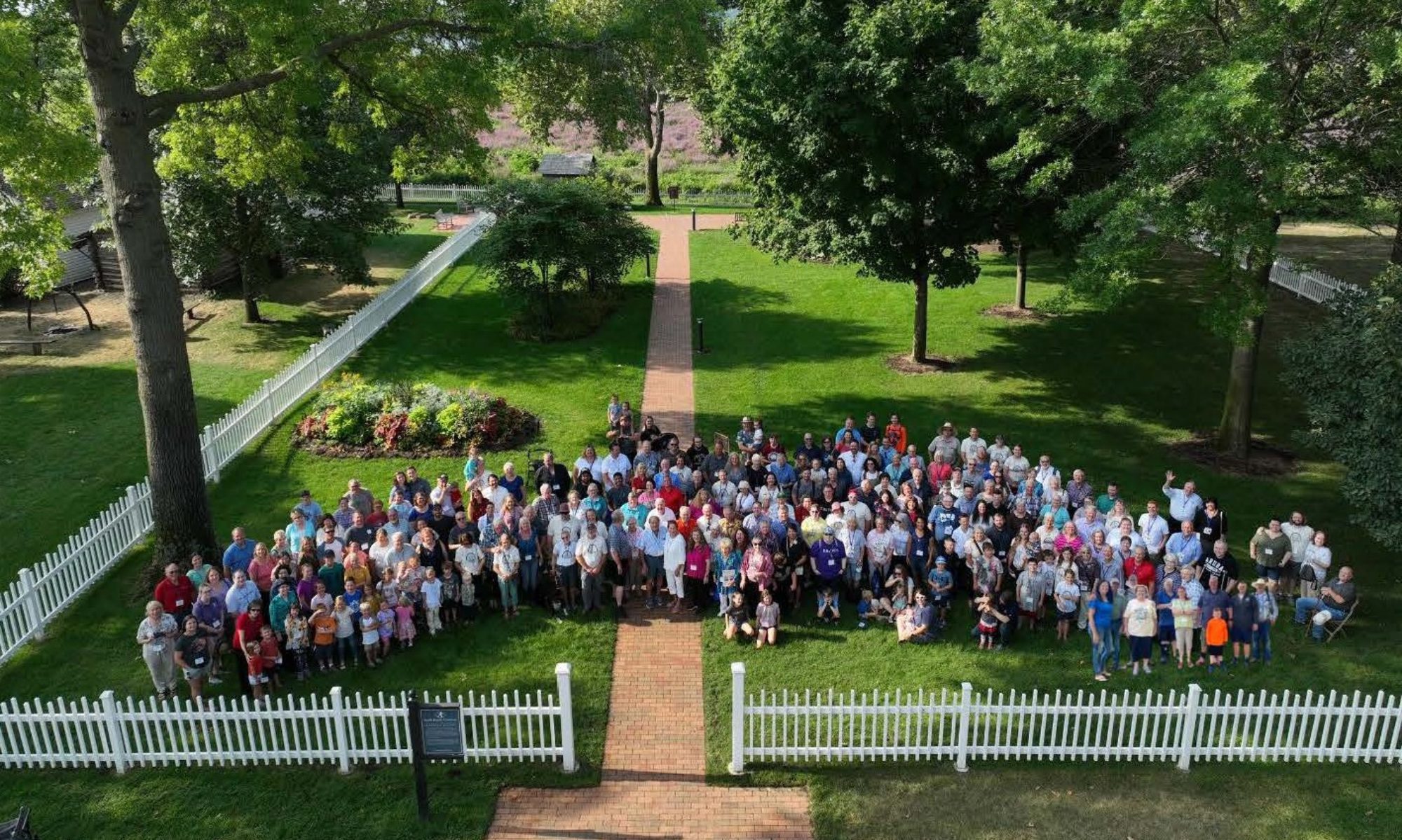BYU assistant professor Casey Griffiths laughed as he recalled walking away from talking with former Community of Christ apostle Andrew Bolton at an interfaith dialogue in Nauvoo last September, wondering if they were still friends.
“That was never in question,†Bolton chimed in with a smile, sitting across the table from Griffiths in a religious faculty library at Brigham Young University on March 21.
Bolton, his wife, Jewell, and current apostle Lachlan Mackay were among officials from the Community of Christ hosted by BYU last week for an interfaith dialogue. This is the fourth meeting of its kind, Bolton said, with this dialogue focusing on sacraments and ordinances.
The Church of Jesus Christ of Latter-day Saints and the Community of Christ share almost 15 years of common heritage, from 1830 when the church was organized to the death of Joseph Smith Jr. in 1844. Interfaith dialogue is important to both faiths, which continue to work together and learn from their shared history.
Bolton, who served as an apostle for the Community of Christ from 2007 to 2016, said enrichment and new insights to his faith are two of the things he hopes to gain at interfaith dialogues with BYU. He said there are “treasures to discover,†like a deeper understanding of commons beliefs.
“Bob Millet (former dean of religious education at BYU) introduced me to the concept of ‘Infinite Atonement’ from the Book of Mormon,” Bolton said. “I never understood that before so that’s been a huge blessing.”
The Community of Christ, formerly the Reorganized Church of Jesus Christ of Latter Day Saints that changed its name in 2001, has 250,000 members worldwide. Bolton, who was baptized in Wales over 40 years ago, said India and Haiti currently have the highest concentrations of Community of Christ members around the world and “more people speak French than English in church on a Sunday morning.â€
In the U.S., nearly one-third of members reside in the Kansas City area near the church’s headquarters in Independence, Missouri, according to Mackay. As part of the Council of Twelve Apostles of the Community of Christ, Mackay oversees the Northeast USA Mission Field and serves as the historic sites director and church history lead.
About 10 percent of Community of Christ members will be called to priesthood office during their lifetime, Mackay said. The leadership organization is similar to that of the LDS Church: a pastor serves over a congregation, mission centers are similar to stakes, and apostles have responsibility over a specific geographical area of mission centers. A world conference, similar to a general conference, is held every three years.
Bolton said he admires the LDS returned missionaries who come home with international experience, as well as the resources and size of the church. Community of Christ leads mission trips too, but for shorter amounts of time.
“My dad often quoted, ‘Walk together, talk together, all ye peoples of the earth. And then, and only then, will ye have peace,’ and that’s exactly what’s happening,†Jewell Bolton said of the Community of Christ’s missionary efforts.
While there are many common threads, Bolton also talked about two distinct differences between the Community of Christ and LDS faith — ordination of women beginning in 1984 and same-sex marriage in the U.S. in 2013 — that reflect their belief in “the worth of persons†and “the soul as non-gender,†he said.
“I think Community of Christ is more nimble, smaller, so we can make change much faster,†Bolton said. “But there are mistakes to avoid. And there are things we’ve done well that (the LDS Church) can do better.â€
Bolton talked about the idea of “theocratic democracy,†in which God leads and the people choose, and that God’s word is “conceptual” rather than “plenary” or absolute. He described the Community of Christ as “a people with a prophet but we’re also called to be a prophetic people. We have a responsibility to discern what God may be saying.â€
Though it may be difficult to discern God’s will in the world we live in today, Mackay said he often thinks back to the culture of Joseph Smith’s time.
“Then, it was the industrial revolution that was causing all this upheaval. Today it’s the technology revolution,†he said. “It feels like it’s spinning out of control (but) my faith keeps me sane. The idea that I may be able to work with others to make life just a little better is deeply meaningful to me.â€
Griffiths said those who believe in Jesus Christ and the teachings of the Restoration, like both the Community of Christ and LDS faiths, are able to “see the world through a lens where everyone is a son or daughter of God (with) intrinsic value.”
“It’s nice to meet wonderful people like these and realize there is so much good in the world in our faith tradition and in other faith traditions,” Griffiths said. “The good people of the world should ban together and help each other and do everything they can to lift everyone around them.â€
Bolton and Mackay were among guests from the Community of Christ who met with Elder J. Devn Cornish, a General Authority Seventy from the LDS Church, on Temple Square on March 23 as part of their visit to BYU. In September, BYU professors plan to go to Independence for a dialogue with the Community of Christ about Zion.

